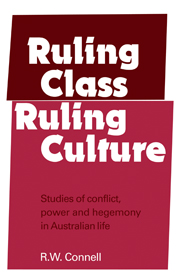Summary
If there remained any lingering doubt about the class nature of Australian politics, the events of late 1975 must have resolved it. There is hardly a clearer case, in the recent history of the ‘western democracies’, of the way a threatened ruling class is able to mobilize fragments of state power, business connections, financial resources, and the legitimacy given them by the dominant culture, in a campaign to remove an offending government.
The Labor leadership itself immediately interpreted the coup of October–November as the product of a personal lust for power in the Liberal parliamentary leadership. This was an understandable reaction, but it is far from being an adequate analysis. The stock market, a sensitive if oblique indicator of the state of mind of capitalists, jumped 17 points on the day Whitlam was dismissed, and had previously twitched upwards at every rumour of trouble in the government. Fraser's parliamentary manoeuvre had only been made possible by the intransigence of conservative state governments in refusing to replace Senate vacancies with Labor nominees; Kerr's dismissal of Whitlam was made possible by the banks' refusal to extend temporary finance. As the essays in this book show, the moves of late 1975 were only the last in a series of attempts to mobilize ruling-class forces since the fragmentation of the early 1970s. This time, with the aid of the Governor-General appointed by Whitlam himself because of his respectability and moderation, they succeeded.
- Type
- Chapter
- Information
- Ruling Class, Ruling Culture , pp. vii - xPublisher: Cambridge University PressPrint publication year: 1977
- 1
- Cited by



